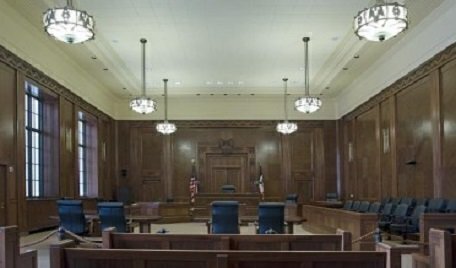The recent raid on the office of Michael Cohen, one of President Trump’s personal lawyers, has raised a number of questions on attorney-client privilege and the circumstances under which the privilege can be overcome.
 To recap: Special Counsel Robert Mueller was appointed by Deputy Attorney General Rod Rosenstein to investigate allegations of collusion between the Trump campaign and the Russian government in the 2016 presidential election. Because Mueller’s mandate is limited to the allegations of collusion or any other matters that arise directly from the investigation, what he may have uncovered on Cohen may not have related to Russian interference in the election, leaving him unsure of whether he had the authority to pursue it. So Mueller referred the case to the Southern District of New York (SDNY), who then went up the chain to Rosenstein.
To recap: Special Counsel Robert Mueller was appointed by Deputy Attorney General Rod Rosenstein to investigate allegations of collusion between the Trump campaign and the Russian government in the 2016 presidential election. Because Mueller’s mandate is limited to the allegations of collusion or any other matters that arise directly from the investigation, what he may have uncovered on Cohen may not have related to Russian interference in the election, leaving him unsure of whether he had the authority to pursue it. So Mueller referred the case to the Southern District of New York (SDNY), who then went up the chain to Rosenstein.
In other words, the SDNY’s investigation of Michael Cohen and Robert Mueller’s investigation of the Trump campaign are two separate investigations. There are questions, however, over whether Mueller can use evidence from the SDNY investigation to bolster his own case. If the SDNY found communications between Cohen and President Trump that proved collusion, for example, could they turn those emails over to Mueller to use for his own case?
If the agents discover evidence of a crime outside of the crime for which the warrant was issued, they don’t have to disregard that evidence. But the remaining question is, as President Trump has argued, whether his communications with Cohen are protected by attorney-client privilege. As the district court for the SDNY ruled in Golden Trade v. Lee Apparel Co. (S.D.N.Y. 1992), attorney-client privilege is “absolute in the sense that it cannot be overcome merely by a showing that the information would be extremely helpful to the party seeking disclosure.” Courts have generally protected attorney-client privilege as related to the Fifth Amendment right against self-incrimination.
Golden Trade was an extension of the Supreme Court’s ruling in Upjohn Co. v. United States (1981), where the Court said that, “The attorney-client privilege is the oldest of the privileges for confidential communications known to the common law. Its purpose is to encourage full and frank communication between attorneys and their clients, and thereby promote broader public interests in the observance of law and administration of justice. The privilege recognizes that sound legal advice or advocacy serves public ends and that such advice or advocacy depends upon the lawyer's being fully informed by the client.”
President Trump could argue that admitting his communications with Cohen into evidence violates the “public interests in the observance of law and administration of justice,” as the Court in Upjohn noted. And as some courts have found, “government interference with the confidential relationship between a defendant and his counsel may implicate Sixth Amendment rights,” citing Clutchett v. Rushen (9th Cir. 1985).
To overcome the presumption in favor of privilege, Mueller might argue that Cohen’s communications with Trump fail Professor John Henry Wigmore’s generally accepted rules necessary to establish a relation-based privilege:
- The communications must originate in a confidence that they will not be disclosed.
- This element of confidentiality must be essential to the full and satisfactory maintenance of the relation between the parties.
- The relation must be one which, in the opinion of the community, ought to be sedulously fostered.
- The injury that would inure to the relation by the disclosure of the communications must be greater than the benefit thereby gained for the correct disposal of litigation.
Cohen’s communications with Trump could fail under (3) and (4), for example, if those communications were used in furtherance of a crime. As the Supreme Court held in Clark v. United States (1933), “There is a privilege protecting communications between attorney and client. The privilege takes flight if the relation is abused. A client who consults an attorney for advice that will serve him in the commission of a fraud will have no help from the law. He must let the truth be told.” If the Trump’s communications with Cohen were tainted by crime or fraud, Mueller could argue that privilege does not apply.
The Supreme Court has not proposed any decisive tests for when the “crime-fraud” exception applies, so the D.C. District Court will have to rule on any evidence that Mueller brings on a case-by-case basis. This case-by-case review will likely be subject to judicial scrutiny. In United States v. Zolin (1989), the Supreme Court held that courts can review suspected crime-fraud exceptions if the party seeking disclosure makes a threshold “showing of a factual basis adequate to support a good faith belief by a reasonable person, that in camera review of the materials may reveal evidence to establish the claim that the crime-fraud exception applies.”
In other words, if Mueller wants to admit Cohen’s emails with Trump into evidence, he will likely have to use evidence outside the SDNY investigation to demonstrate that the “crime-fraud” exception applies.
Ugonna Eze is a Fellow for Constitutional Studies at the National Constitution Center.







